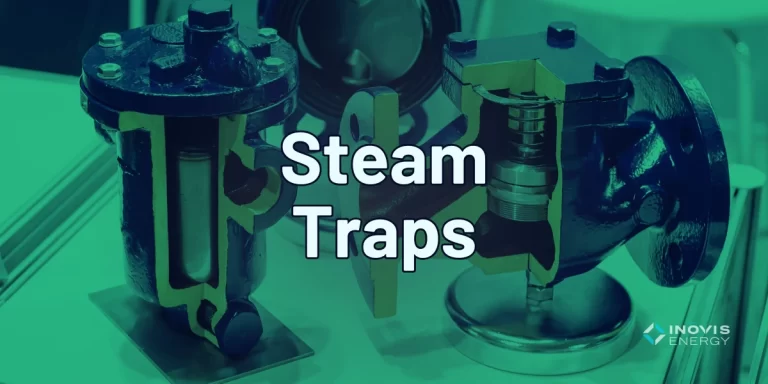Steam traps are essential for efficient steam system operation, removing condensate and air without losing valuable steam. When traps fail, energy waste and maintenance issues quickly follow. This page explores how proactive steam trap solutions can improve system performance and cut operating costs.
Table of Contents

What is a Steam Trap?
A steam trap is a device used in steam systems to automatically discharge condensate, air, and other non-condensable gases while retaining steam. These devices play a crucial role in maintaining thermal efficiency and preventing water hammer, corrosion, and performance loss in systems that rely on steam for heating, sterilization, or manufacturing.
Steam traps come in various types—mechanical (float and thermostatic), thermostatic (bimetallic and bellows), and thermodynamic. Each serves a specific application depending on pressure, load variability, and required responsiveness. When steam traps fail open, they waste energy; when they fail closed, they cause pressure issues and equipment damage. Regular monitoring and timely replacement are key to ensuring optimal system performance.
Why Upgrade Your Steam Traps?
Key Benefits:
-
Prevents steam and energy losses caused by failed traps
-
Reduces water hammer, corrosion, and pipe damage
-
Improves system efficiency and temperature control
-
Lowers fuel consumption in boilers
-
Enhances safety and equipment lifespan
-
Often qualifies for utility rebates and performance incentives
How a Steam Trap Works
Steam traps operate by detecting the difference between steam and condensate based on temperature, pressure, or density.
-
Mechanical Traps: Use floats or buckets that rise and fall with condensate levels
-
Thermostatic Traps: Expand or contract based on temperature
-
Thermodynamic Traps: Use velocity and pressure differences of steam vs. water
Once a trap detects condensate, it opens a valve to discharge it. It then closes again to retain live steam. Proper operation ensures that only condensate and air exit the system, keeping steam where it’s needed.
How Steam Trap Replacement Saves Energy
Failed open steam traps can lose hundreds of pounds of steam per day. Replacing faulty traps with efficient, properly sized models significantly reduces unnecessary steam loss, cutting fuel use and boiler runtime.
Typical savings:
-
5–20% of total steam energy use in a facility
-
Rapid ROI, often under 2 years
-
Boosted performance in heat exchangers, coils, and sterilizers
Steam trap surveys paired with proactive maintenance offer one of the highest returns of any energy efficiency upgrade.
Industries That Benefit from Steam Trap Solutions
Hospitals, universities, manufacturing plants, food processing facilities, correctional institutions, and any facility with a central steam system.
Any medium to large commercial, institutional, or municipal facility.
Our Process for Steam Traps
-
Site Audit – Identify all steam trap locations and types
-
Trap Survey – Ultrasonic or thermal testing to detect failed traps
-
Analysis & Selection – Choose optimal replacement types and models
-
Incentive Review – Identify eligible utility rebates and prepare documentation
-
Installation – Coordinate shutdowns and install new traps with minimal disruption
-
Commissioning – Verify performance and report energy impact
Financing Options for Steam Trap Projects
Many utility programs offer rebates covering 30–70% of steam trap replacement costs, especially in industrial and institutional settings. Inovis Energy can apply these rebates directly as partial payment to reduce your upfront investment.
Additional options include:
-
On-bill repayment through participating utilities
-
Capital cost deferral
-
Bundled efficiency projects with shared savings
In many cases, monthly energy savings exceed payment costs, making the upgrade cash-flow positive from day one.
Ready to Stop Steam Loss?
Even a single failed steam trap can cost your facility thousands in wasted fuel every year. Inovis Energy helps you identify, replace, and optimize your steam traps to lower energy bills and improve reliability. Start with a free site assessment.
